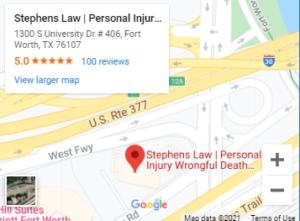Res Ipsa Loquitur

Res ipsa loquitur is a fancy-sounding Latin term that means “the thing speaks for itself.” In personal injury law, it is a rule of evidence that provides a shortcut to proving negligence.
Even if your evidence cannot reconstruct the exact series of events that led to an injury, it might be able to establish that the accident could not have happened unless someone was negligent.
Table of Contents
Res Ipsa Loquitur as a Rule of Evidence

Accidents happen frequently, and many of them are nobody’s fault. So how do you establish that a particular accident was somebody’s fault? You rely on direct evidence if you have any. Ideally, you would have CCTV footage of the entire accident, complete with audio. This is rarely the case, however. You might also have testimony from a credible witness, which is almost as good.
You might have to rely on circumstantial evidence if you lack sufficient direct evidence. This is where your claim can get difficult to prove. You invoke res ipsa loquitur when you have access to a particular kind of circumstantial evidence that courts have relied on in the past to decide cases in the injury victim’s favor.
The Burden of Proof
You are likely to have heard the phrase “guilty beyond a reasonable doubt,” which is the standard of review in a criminal prosecution. You may not have heard the phrase “a preponderance of the evidence.” That is the standard of proof that applies to a civil claim. Essentially, it means that the complaining party must prove that their claim is “more likely than not” to be true – about a 51% likelihood.
Normally, this is not a very difficult standard to meet. Nevertheless, it can be challenging to meet this standard when you rely completely on circumstantial evidence. Res ipsa loquitur was designed to make it easier for complaining parties armed with only circumstantial evidence to prevail.
The Legal Elements of Res Ipsa Loquitur
To win a personal injury claim based on res ipsa loquitur, you must prove the following legal elements:
- The accident in question rarely happens unless someone is negligent. Think of a hammer falling from the top of a building under construction and hitting a pedestrian.
- The defendant owed you a duty of care. This element is usually easy to prove. For example, a construction company owes a duty of care to protect passing pedestrians.
- The defendant was in sole control of the circumstances of the accident.
- The evidence eliminates everyone but the defendant as the liable party (only the construction company’s workers were on the roof when the hammer fell, for example).
Once you establish res ipsa loquitur, the burden of proof operates in reverse. At the beginning of the case, it was your job to prove that the defendant was liable. Now, it is the defendant’s job to prove that they are not liable. This can be an onerous burden for a defendant to meet.
Types of Cases That Frequently Generate Res Ipsa Loquitur Claims
Medical malpractice, premises liability, and product liability frequently generate res ipsa loquitur claims.
Medical Malpractice
Texas courts recognize res ipsa loquitur only under the following limited circumstances:
- Negligence in the use of mechanical instruments,
- Operating on the wrong organ of the patient’s body and
- Leaving foreign objects (such as medical instruments) inside the patient’s body after surgery.
Texas courts have recognized no new forms of res ipsa loquitur for medical malpractice since August 29, 1977.
Premises Liability
A premises liability claim arises when a dangerous condition injures someone on private property. The owner or renter of the property can bear liability for any resulting injuries if they failed to repair or failed to warn of a dangerous condition on the property.
Product liability
A product liability claim arises when someone suffers an injury from a defective consumer product (whether or not you own the product). Normally, you prove this claim through direct evidence. If you lose the product or if someone destroys it, you can still use res ipsa loquitur to prove liability.
Defenses to Res Ipsa Loquitur
Following are some examples of defenses against a tort claim in which the complaining party relies on res ipsa loquitur:
- The accident would have occurred despite reasonable efforts to prevent it (accidents caused by earthquakes, for example).
- The accident was partially or wholly the fault of the injured party
- The statute of limitations has passed. In Texas, you have two years from an accident to file a personal injury lawsuit. If you miss the deadline, your claim will be worthless. In case of a fatality, you also have two years from the victim’s date of death to file a wrongful death lawsuit.
These are not the only possible defenses to res ipsa loquitur claims.
The Right Fort Worth Personal Injury Lawyer Could Multiply the Value of Your Claim
Most personal injury lawyers will charge you nothing unless they win your claim. If they win, you will pay them a certain percentage of the amount you win. The arrangement puts you and your lawyer on the same side-–the more you win, the more they win.
Consider hiring a Fort Worth personal injury lawyer to resolve your claim. Contact us today or call us at (817) 420-7000, our lawyers at Stephens Law Firm will answer all the questions you have.

